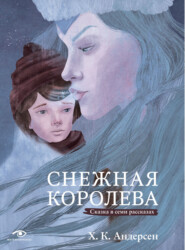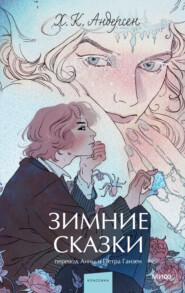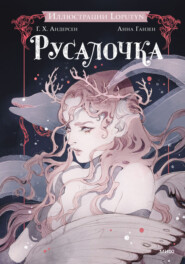По всем вопросам обращайтесь на: info@litportal.ru
(©) 2003-2024.
✖
The Sand-Hills of Jutland
Настройки чтения
Размер шрифта
Высота строк
Поля
"Now the lady-birds shall read," said little Inger. "See how they turn the paper!"
As she grew older she became worse instead of better; but she was very beautiful, and that was her misfortune. She would have been punished otherwise, and in the long run she was.
"You will bring evil on your own head," said her mother.
"As a little child you used often to tear my aprons; I fear that when you are older you will break my heart."
And she did so sure enough.
At length she went into the country to wait on people of distinction. They were as kind to her as if she had been one of their own family; and she was so well dressed that she looked very pretty, and became extremely arrogant.
When she had been a year in service her employers said to her, —
"You should go and visit your relations, little Inger."
She went, resolved to let them see how fine she had become. When, however, she reached the village, and saw the lads and lasses gossiping together near the pond, and her mother sitting close by on a stone, resting her head against a bundle of firewood which she had picked up in the forest, Inger turned back. She felt ashamed that she who was dressed so smartly should have for her mother such a ragged creature, one who gathered sticks for her fire. It gave her no concern that she was expected – she was so vexed.
A half year more had passed.
"You must go home some day and see your old parents, little Inger," said the mistress of the house. "Here is a large loaf of white bread – you can carry this to them; they will be rejoiced to see you."
And Inger put on her best clothes and her nice new shoes, and she lifted her dress high, and walked so carefully, that she might not soil her garments or her feet. There was no harm at all in that. But when she came to where the path went over some damp marshy ground, and there were water and mud in the way, she threw the bread into the mud, in order to step upon it and get over with dry shoes; but just as she had placed one foot on the bread, and had lifted the other up, the bread sank in with her deeper and deeper, till she went entirely down, and nothing was to be seen but a black bubbling pool.
That is the story.
What became of the girl? She went below to the Old Woman of the Bogs, who brews down there. The Old Woman of the Bogs is an aunt of the fairies. They are very well known. Many poems have been written about them, and they have been printed; but nobody knows anything more of the Old Woman of the Bogs than that, when the meadows and the ground begin to reek in summer, it is the old woman below who is brewing. Into her brewery it was that Inger sank, and no one could hold out very long there. A cesspool is a charming apartment compared with the old Bog-woman's brewery. Every vessel is redolent of horrible smells, which would make any human being faint, and they are packed closely together and over each other; but even if there were a small space among them which one might creep through, it would be impossible, on account of all the slimy toads and snakes that are always crawling and forcing themselves through. Into this place little Inger sank. All this nauseous mess was so ice-cold that she shivered in every limb. Yes, she became stiffer and stiffer. The bread stuck fast to her, and it drew her as an amber bead draws a slender thread.
The Old Woman of the Bogs was at home. The brewery was that day visited by the devil and his dam, and she was a venomous old creature who was never idle. She never went out without having some needlework with her. She had brought some there. She was sewing running leather to put into the shoes of human beings, so that they should never be at rest. She embroidered lies, and worked up into mischief and discord thoughtless words, that would otherwise have fallen to the ground. Yes, she knew how to sew and embroider, and transfer with a vengeance, that old grandam!
She beheld Inger, put on her spectacles, and looked at her.
"That is a girl with talents," said she. "I shall ask for her as a souvenir of my visit here; she may do very well as a statue to ornament my great-grandchildren's antechamber;" and she took her.
It was thus little Inger went to the infernal regions. People do not generally go straight through the air to them: they can go by a roundabout path when they know the way.
It was an antechamber in an infinity. One became giddy there at looking forwards, and giddy at looking backwards, and there stood a crowd of anxious, pining beings, who were waiting and hoping for the time when the gates of grace should be opened. They would have long to wait. Hideous, large, waddling spiders wove thousands of webs over their feet; and these webs were like gins or foot-screws, and held them as fast as chains of iron, and were a cause of disquiet to every soul – a painful annoyance. Misers stood there, and lamented that they had forgotten the keys of their money chests. It would be too tiresome to repeat all the complaints and troubles that were poured forth there. Inger thought it shocking to stand there like a statue: she was, as it were, fastened to the ground by the bread.
"This comes of wishing to have clean shoes," said she to herself. "See how they all stare at me!"
Yes, they did all stare at her; their evil passions glared from their eyes, and spoke, without sound, from the corner of their mouths: they were frightful.
"It must be a pleasure to them to see me," thought little Inger. "I have a pretty face, and am well dressed;" and she dried her eyes. She had not lost her conceit. She had not then perceived how her fine clothes had been soiled in the brewhouse of the Old Woman of the Bogs. Her dress was covered with dabs of nasty matter; a snake had wound itself among her hair, and it dangled over her neck; and from every fold in her garment peeped out a toad, that puffed like an asthmatic lap-dog. It was very disagreeable. "But all the rest down here look horrid too," was the reflection with which she consoled herself.
But the worst of all was the dreadful hunger she felt. Could she not stoop down and break off a piece of the bread on which she was standing? No; her back was stiffened; her hands and her arms were stiffened; her whole body was like a statue of stone; she could only move her eyes, and these she could turn entirely round, and that was an ugly sight. And flies came and crept over her eyes backwards and forwards. She winked her eyes; but the intruders did not fly away, for they could not – their wings had been pulled off. That was another misery added to the hunger – the gnawing hunger that was so terrible to bear!
"If this goes on I cannot hold out much longer," she said.
But she had to hold out, and her sufferings became greater.
Then a warm tear fell upon her head. It trickled over her face and her neck, all the way down to the bread. Another tear fell, then many followed. Who was weeping over little Inger? Had she not a mother up yonder on the earth? The tears of anguish which a mother sheds over her erring child always reach it; but they do not comfort the child – they burn, they increase the suffering. And oh! this intolerable hunger; yet not to be able to snatch one mouthful of the bread she was treading under foot! She became as thin, as slender as a reed. Another trial was that she heard distinctly all that was said of her above on the earth, and it was nothing but blame and evil. Though her mother wept, and was in much affliction, she still said, —
"Pride goes before a fall. That was your great fault, Inger. Oh, how miserable you have made your mother!"
Her mother and all who were acquainted with her were well aware of the sin she had committed in treading upon bread. They knew that she had sunk into the bog, and was lost; the cowherd had told that, for he had seen it himself from the brow of the hill.
"What affliction you have brought on your mother, Inger!" exclaimed her mother. "Ah, well! I expected no better from you."
"Would that I had never been born!" thought Inger; "that would have been much better for me. My mother's whimpering can do no good now."
She heard how the family, the people of distinction who had been so kind to her, spoke. "She was a wicked child," they said; "she valued not the gifts of our Lord, but trod them under her feet. It will be difficult for her to get the gates of grace open to admit her."
"They ought to have brought me up better," thought Inger. "They should have taken the whims out of me, if I had any."
She heard that there was a common ballad made about her, "the bad girl who trod upon bread, to keep her shoes nicely clean," and this ballad was sung from one end of the country to the other.
"That any one should have to suffer so much for such as that – be punished so severely for such a trifle!" thought Inger. "All these others are punished justly, for no doubt there was a great deal to punish; but ah, how I suffer!"
And her heart became still harder than the substance into which she had been turned.
"No one can be better in such society. I will not grow better here. See how they glare at me!"
And her heart became still harder, and she felt a hatred towards all mankind.
"They have a nice story to tell up there now. Oh, how I suffer!"
She listened, and heard them telling her history as a warning to children, and the little ones called her "ungodly Inger." "She was so naughty," they said, "so very wicked, that she deserved to suffer."
The children always spoke harshly of her. One day, however, that hunger and misery were gnawing her most dreadfully, and she heard her name mentioned, and her story told to an innocent child – a little girl – she observed that the child burst into tears in her distress for the proud, finely-dressed Inger.
"But will she never come up again?" asked the child.
The answer was, —
"She will never come up again."
"But if she will beg pardon, and promise never to be naughty again?"
"But she will not beg pardon," they said.
"Oh, how I wish she would do it!" sobbed the little girl in great distress. "I will give my doll, and my doll's house too, if she may come up! It is so shocking for poor little Inger to be down there!"
These words touched Inger's heart; they seemed almost to make her good. It was the first time any one had said "poor Inger," and had not dwelt upon her faults. An innocent child cried and prayed for her. She was so much affected by this that she felt inclined to weep herself; but she could not, and this was an additional pain.
Years passed on in the earth above; but down where she was there was no change, except that she heard more and more rarely sounds from above, and that she herself was more seldom mentioned. At last one day she heard a sigh, and "Inger, Inger, how miserable you have made me! I foretold that you would!" These were her mother's last words on her deathbed.
And again she heard herself named by her former employers, and her mistress said, —
"Perhaps I may meet you once more, Inger. None know whither they are to go."

















